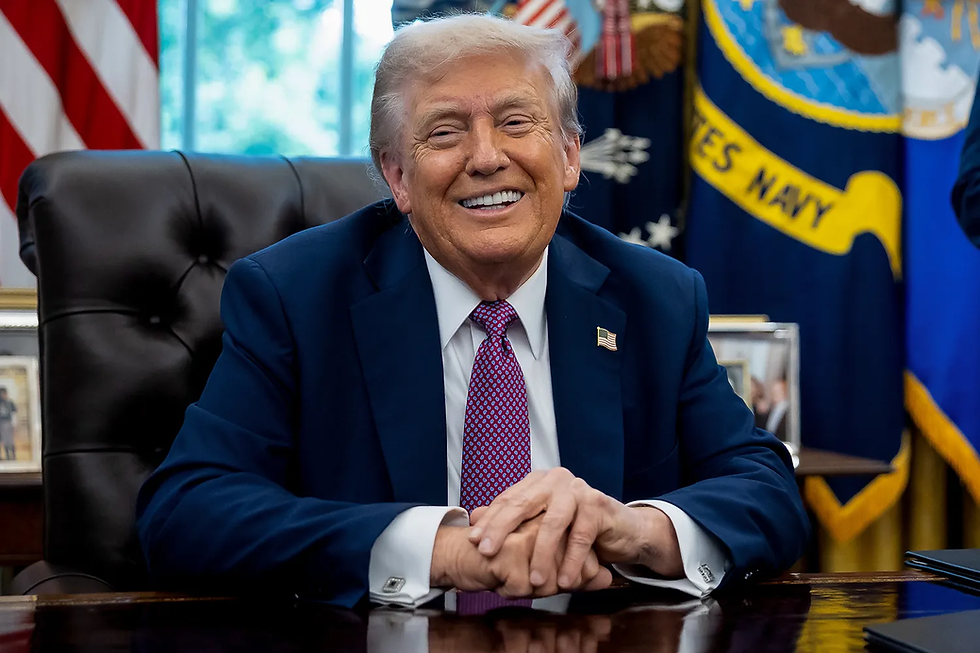When Faith Meets Fundraising: Trump Seeks Supporters’ $15 to “Get to Heaven”
- Sep 5, 2025
- 2 min read
5 September 2025

In late August, President Donald Trump launched one of the most unusual fundraising campaigns in recent memory, melding religious imagery with political ambition. With subject lines like “I want to try and get to Heaven,” his campaign pleaded with supporters for $15 contributions during a “24-HOUR TRUMP FUNDRAISING BLITZ.” The appeal cited his survival of a 2024 assassination attempt as a divine mandate an opportunity to “Make America Great Again” and, now, a request for spiritual aid.
This move comes amid swirling speculation about Trump’s health following a quiet Labor Day weekend. His absence from the public eye and reports of physical symptoms like hand bruising and swelling ankles fueled rumors that culminated in conspiracy theories about his death. Trump responded swiftly, posting on Truth Social that he had “NEVER FELT BETTER IN MY LIFE” and framing media coverage as “fake news.”
At the core of the fundraising email were echoes of faith and survival. Trump’s words “I came millimeters from death… I believe that God saved me for one reason: TO MAKE AMERICA GREAT AGAIN!” recast political resilience as a spiritual calling. He framed the fundraiser as his spiritual duty, asserting, “I have no other choice but to answer the Call to Duty, but I can’t do it alone.”
This invitation to donate blends the sacred with the political in a way that recalls the prosperity theology especially the idea that financial backing ensures divine reward. Trump’s long-standing ties to this tradition, through his association with figures like televangelist Paula White, give context to this campaign’s spiritual edge. Critics argue his rhetoric continues a pattern of transactional religious messaging, emphasizing power over humility or service.
On August 19, days before launching the fundraising blitz, Trump appeared on Fox & Friends and remarked that peace in Ukraine saving “7,000 people a week” might help his passage into heaven. He acknowledged feeling spiritually at the bottom of the totem pole, further stirring public discomfort and fueling commentary around his mortality.
Faith leaders and media voices responded with concern. MSNBC host Katy Tur, for example, recently called attention to the broader issue of fundraising being tied to political optics, arguing that such tactics diminish the seriousness of governance. Meanwhile, the nearly literal solicitations for divine entry flirt with the discomfort of televangelist indulgence scandals, reinforcing skepticism among critics.
Despite his immense personal wealth Forbes estimates it at $6.1 billion Trump’s call for small donations harkens to populist political strategies: unite, contribute, and share in the cause even if that cause is spiritual salvation.
The Daily Beast
Yet for many observers, this campaign marks a disturbing moment where theology becomes politicized in service of campaign coffers. It isn’t merely fundraising with a faith-forward message it’s faith weaponized to inspire giving in the context of personal redemption.
All told, the email represents more than a quirky headline. It is reflective of how Trump merges image, belief, and ambition deploying religious language as both shield and rallying cry. And as his campaign journeys forward, that fusion of faith and politics may become one of his most distinctive and controversial legacies.



Comments